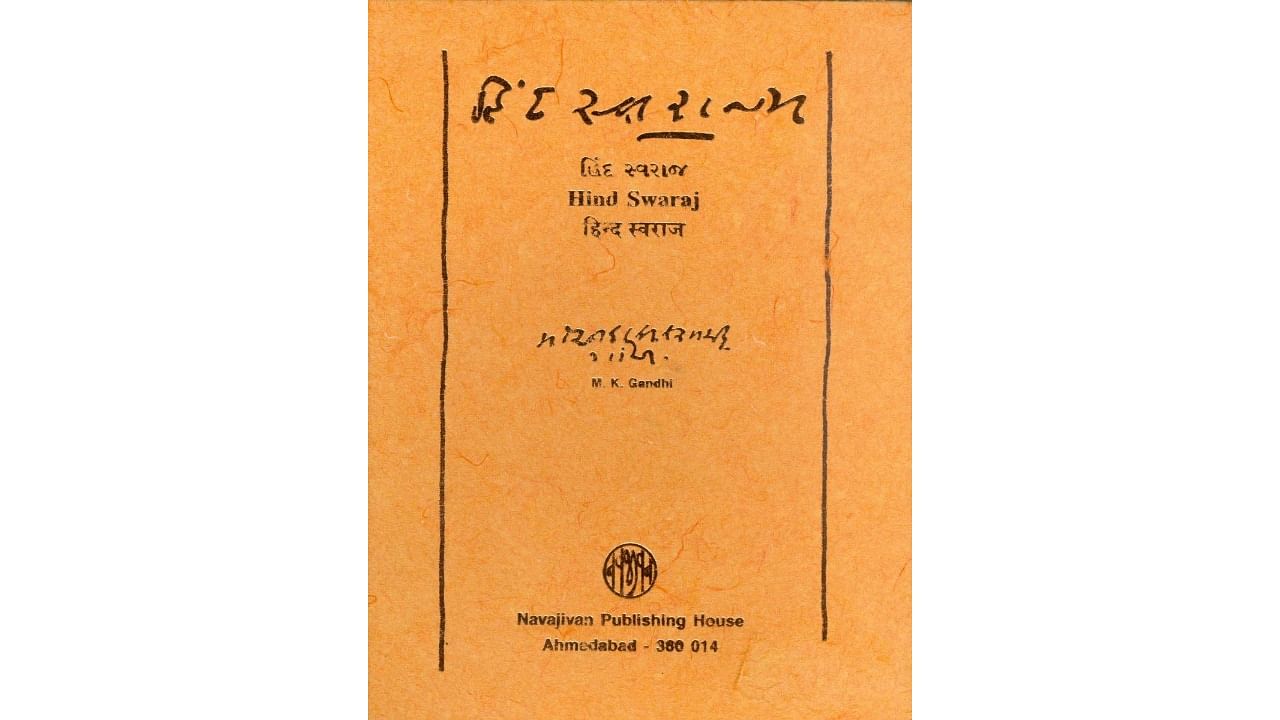
As we celebrate 75 years of independence, it is a good time to review whether we have been true to the vision of our freedom fighters. But how do we do that if we don’t even know what the vision of the leader of the freedom movement was? Most Indians do not know that Gandhiji had in fact presented one as early as 1909 and that it remains perhaps his most important piece of writing. It is called Hind Swaraj. Without studying it, one understands neither Gandhiji nor the freedom movement. Sadly, however, most Indians haven’t read it. Quite typically, we called him the ‘father of the nation’, and entirely forgot his vision for it.
Hind Swaraj was, in fact, the most influential vision of a Free India. This seminal work inspired an entire generation to join the freedom struggle and to strive for the revival of the civilisational idea of India. It established Gandhiji as the leader of the freedom struggle and guided the movement.
Hind Swaraj is a small booklet that carries wisdom beyond its size and its time. It is a manifesto for civilisational recovery and renewal and shows Gandhiji’s true genius. It is of relevance not just for India, but for the world.
Also Read | Red Fort: The symbol of the 1857 rebellion
It expresses the vision of a country that is independent not purely in political status, but in its culture, its self-belief, its relationship with nature, citizens and violence, its idea of governance, its economics, a vision of planetary sustainability, of universal fairness and equality. It is a definitive piece on decolonisation, striking deep at the building blocks that enable exploitation, extraction and subjugation of peoples and nations. Gandhiji believed that an India from which the British leave but in which Britishness stays, is not a free India at all; that if we brown-skins took over the administration, but the colonial administrative structure, laws and outlook remained, then our nation is not free at all. It is time to examine whether that is not, in fact, what we have done to ourselves.
Gandhiji championed decentralisation and devolution, in fact making it the defining aspect of true independence -- that communities may govern themselves, and their commons. This aspect of governance was ignored by the writers of our Constitution and is still struggling to find space in our governing structures.
However, it is on the greatest, and perhaps existentialist, challenge our generation faces – the climate change emergency -- that his thoughts are most pertinent. Hind Swaraj questioned the pursuit of the western notion of modernity based on ‘reductionism’, where progress is determined by material growth and externalisation of the planet itself. He stated in no uncertain terms that unlimited factory production and urbanisation would destroy our planet. He backed sustainable and distributed forms of production and habitation that would not put stress on the ecological balance.
Also Read | Congress shares draft of Nehru's 'tryst with destiny' speech; he had written 'date with destiny'
When this book (available at: https://www.mkgandhi.org/ hindswaraj/hindswaraj.htm) holds the key to what our freedom struggle aimed to establish as modern India, how is it that the average citizen is not even aware of this book?
Hind Swaraj should be declared the ‘national book’ so that every citizen can read it and evaluate whether we have steered our country in the direction of those lofty goals, set out long before we gained freedom.
Even a quick perusal of the book will reveal that as a nation, we seem to have lost our way. Pretty much every policy that independent India has adopted is at loggerheads with what Gandhiji would have liked to see us pursue. Almost in a textbook manner, Gandhiji articulated the path that India needed to avoid and the ones it should take to be able to lead the world out of the disastrous course it was on.
As we stare at the consequences of unbridled capitalism, of planetary destruction, of worsening divides and widespread poverty, wars and destruction, of global warming and climate change, and hurtle towards possible mass extinction, we must wonder why we didn’t hear Gandhiji’s warnings.
Perhaps understanding the ideas contained in this book will lead us all toward new freedom of intellectual discussion, a culture of dialogue and tolerance, mutual respect, engagement rather than conflict, replacing competition with cooperation, and a movement towards true self-determination, respect for nature, and introspection of our ideas of progress and economic growth -- an exploration toward a sustainable future based on alternative models of economics and development.
It is time to restore Hind Swaraj to our national consciousness and correct our trajectory, away from neo-colonialism.
(The writer is founder of
Citizens’ Agenda for
Bengaluru)